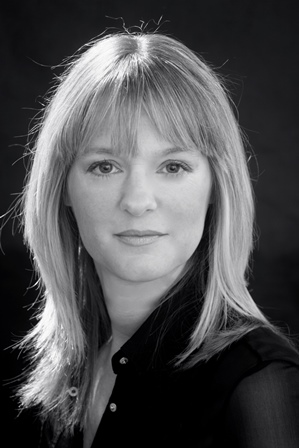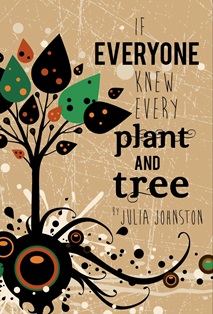Right pleased I was, winning the W&A blurb competition, the prize being a publishing package with the Amazon-owned Createspace. Partly my own perfectionism (read ‘indecisiveness’?) to blame, but the sometimes overwhelming process took a whole year from start to finish.

Right pleased I was, winning the W&A blurb competition, the prize being a publishing package with the Amazon-owned Createspace. Partly my own perfectionism (read ‘indecisiveness’?) to blame, but the sometimes overwhelming process took a whole year from start to finish.
I wanted a paperback edition (POD-Print on Demand) as well as an eBook, but it was time-consuming. You focus on the look of the book and you must approve physical copies which have to be meticulously checked/reprinted/shipped with corrections. Cover design, interior design, and editing—all require substantial input. This is both the most welcome and most challenging aspect of self-publishing.
The time difference and ‘language barrier’ added to the challenge of making speedy effective decisions. The Createspace staff couldn’t have been more helpful and patient, but something was definitely lost in translation.
I had to send a lexicon of British English words to the editor too including ‘bonkers’, ‘sloshed’, ‘Asda’, ‘Lynx body spray’, ‘Butterscotch Angel Delight’ ‘grub’ and ‘arse’.
Misunderstandings were sometimes more serious. Nearing the end of the journey, the back and forth caper became exasperating. I’d be sent a proof copy, find errors like line breaks, and wait for the next one. A word had been incorrectly spelt in a poem once (spotted by my eighty-nine year old mother!) but it wasn’t my mistake. I was sent a subsequent copy with… the error uncorrected. Argh. As my launch date approached, anxiety mounted. Would I receive the box of expensively shipped ‘perfect’ books in time?
In the end, they weren’t perfect—it seemed with every proof, another line break or missing/inserted letter would appear. The process would have been easier and a lot quicker, I imagine, if I’d been working with a UK-based company. Oh, and the imperfect books did arrive on time for the book launch.
Publishing an eBook only would have been loads quicker. If a reader likes your work, they’ll look to see what else you have out and some indie authors are increasing their output and therefore their visibility, by putting out collections of short stories, non-fiction work, blogs-made-books etc ‘over night’. Nothing to lose, and if they’re well written and well received, a heck of a lot to gain. And you can change or withdraw an eBook whenever you want. Some writers who churn out two, three, four novels a year e.g. in the romance genre, offer a new book free, aware that the freebie might well lead smitten readers to purchase their backlist. Clever stuff. Very markety stuff too, which is alien to many ‘creatives’!
And so on to promotion and marketing! I’ve learnt stacks since my novel came out. Pushing your ‘product’—yucky words to most writers—is crucial, if you want to sell books. You need a plan. Your book will languish, unseen, among the tsunami of titles out there if you do nothing… and that goes for traditionally published books too.
So, below are my marketing tips, most of which cost NOTHING. You would do well to work on:
- a website/blog
- an email sign up on website/blog/in book!
- a presence on one or all—twitter, facebook, google+, Goodreads
- eliciting reviews from friends, family & top Amazon reviewers
- using said reviews in your book description
- the seven descriptive key words or phrases allowed on Amazon. Choose words someone might type in when looking for a book like yours
- your two Amazon categories. MASSIVE TIP HERE—initially, don’t list your book in a highly competitive category like ‘thrillers’. I was invisible in a huge category, but I reached #6 in a less saturated category’s best-seller list, immediately becoming more discoverable to potential readers. Calling myself a ‘best-selling author’ gives me a better chance in a broader category. Amazon staff will help you with this.
- selling your eBook in multiple stores like Smashwords, Kobo, Nook, Apple, even if you start with KDP select (ebook exclusive to Kindle but you gain 70% royalties rather than 35% plus special 5-day promotion to create buzz.) NB Kindle books can be read on all other devices with the Kindle App
- not pricing your book too high or it won’t sell. It keeps changing but at the moment £2.99 and $2.99 seem to be the most popular prices for an ebook
- your sales page so it looks the best it can (link to an author page on Amazon’s ‘Author Central’)
- Join Goodreads as a reader, then an author and try a Goodreads ‘giveaway’—wonderful for exposure
- Apply to Bookbub (not free)
- Join Netgalley (not free)
- Join Author Marketing Club (not free)
- List or advertise your ebook on Bookbub, Pixel of Ink, Fussy Librarian, Ebookdaily, Kboards, ereadernewstoday, digitalbookstoday, kindle books and tips
- Try guest blogging/conduct a blog tour
- Offer talks in schools/libraries/plan a book tour…?!
- Attend book fairs and festivals
- Join the Alliance of Indie authors—ALLi (keep up to date/seek advice)
Good luck, lovely writers!
 Writing tips:
Writing tips:
TIP 1
Choose your Amazon categories carefully (pick the most obscure that reflect your book’s content or themes)
TIP 2
Self-publishing will not ruin your chances of a traditional deal; it can be a swifter route than the slushpile!
TIP 3
However, if you have to do most of your book promotion yourself, would you still surrender your rights and royalties to a publisher...?
Some suggested reading:
How to Market a Book, Joanna Penn.
Opening up to Indie Authors, ALLi
Let’s get digital and Let’s get visible, David Gaughran
Website: www.janefriedman.com - ‘Helping authors and publishers flourish in the digital age’
Find out more about Julia on her website and follow her on Twitter. Find out more about her debut novel here. You can also find her on Goodreads.
I've found these blogposts tremendously helpful - what a generous service you have given the writing community. Thank you!
Your advice feels like a kind of tipping point for me. I submitted my first novel 10 years ago and then, on receiving letters of the type you describe, I progressed no further down that avenue. I preferred the lower stakes of an article here, a poem there (which have been satisfying to do). But sitting down and writing a full-on book is another endeavour entirely and, your writing has reminded me that it could be a challenge worth pursuing again.
I want to add that it sounds like attending the W&A seminar was a turning point for you and it can sometimes take the energy (and wealth of tips) at such events to catalyse us into moving forward.(I certainly found this with my travel writing which went from sitting timidly in my notebook to published, prior and post a one day seminar in London).
Entertaining too! :-)
Julia, I've enjoyed your blogs. They've been thought provoking and very informative.